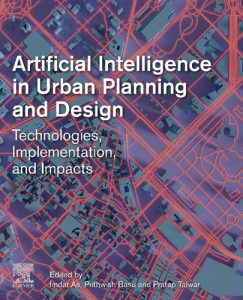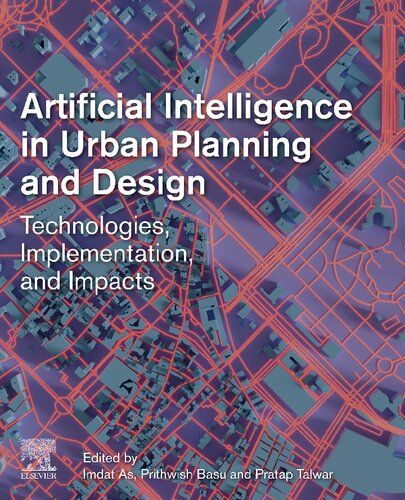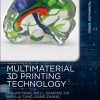Artificial Intelligence in Urban Planning and Design: Technologies, Implementation, and Impacts 1st Edition Imdat As (Editor) – eBook PDF
$50.00 Original price was: $50.00.$35.00Current price is: $35.00.
Artificial Intelligence in Urban Planning and Design: Technologies, Implementation, and Impacts – Ebook PDF
Artificial Intelligence in Urban Planning and Design: Technologies, Implementation, and Impacts – Ebook PDF Instant Delivery – ISBN(s): 9780128239414,0128239417
Product details:
- ISBN-10 : 0128239417
- ISBN-13 : 978-0128239414
- Author: Imdat As, Prithwish Basu
Artificial Intelligence in Urban Planning and Design: Technologies, Implementation, and Impacts is the most comprehensive resource available on the state of Artificial Intelligence (AI) as it relates to smart city planning and urban design. The book explains nascent applications of AI technologies in urban design and city planning, providing a thorough overview of AI-based solutions. It offers a framework for discussion of theoretical foundations of AI, AI applications in the urban design, AI-based research and information systems, and AI-based generative design systems.
The concept of AI generates unprecedented city planning solutions without defined rules in advance, a development raising important questions issues for urban design and city planning. This book articulates current theoretical and practical methods, offering critical views on tools and techniques and suggests future directions for the meaningful use of AI technology.
Table of contents:
Chapter 1: A new agenda for AI-based urban design and planning
Chapter 2: AI and the limits of human creativity in urban planning and design
Chapter 3: Complexity science for urban solutions
Chapter 4: Classes of AI tools, techniques, and methods
Chapter 5: Urban form analysis through morphometry and machine learning
Chapter 6: AI-driven BIM on the cloud
Chapter 7: Deep learning in urban analysis for health
Chapter 8: Spatial design of energy self-sufficient communities
Chapter 9: The image of the city through the eyes of machine reasoning
Chapter 10: Optimizing urban grid layouts using proximity metrics
Chapter 11: Image analytics for urban planning: The case of the Barcelona Superblock
Chapter 12: Complexity science-based spatial performance analyses of UNStudio/DP Architects’ SUTD Campus and WOHA’s Kampung Admiralty
Chapter 13: Understanding urban leisure walking behavior: Correlations between neighborhood features and fitness tracking data
Chapter 14: Spacemaker.Ai: Using AI in developing urban block variations
Chapter 15: Möbius evolver: Competitive exploration of urban massing strategies
Chapter 16: Adaptive master plans: Flexible modular design strategies
Chapter 17: SASAKI: Filling the design gap—Urban impressions with AI
Chapter 18: KPF: A retrospective view on urban planning AI for 2020
People also search:
are urban planners in demand
urban planning artificial intelligence
can an architect be an urban planner
ai and urban planning
artificial intelligence urban planning



